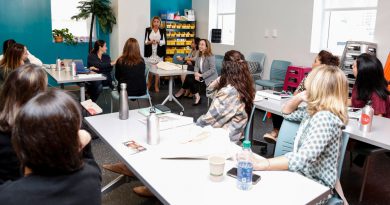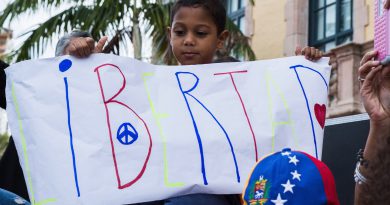My Life As A MUNer
If you are a member of Model United Nations (MUN), or MUNer, you know these three words equate to passing the math test you so much prepped for. The club made my last years of high school memorable: it introduced me to international relations, helped me improve my public speaking skills and gave me the opportunity to travel and make good friends. However, all those nights studying and the conferences made me question the limitations of the United Nations (UN) and what it can do to help my country, Venezuela.
While young people (mostly) get killed in the streets, others praise the legacy of the late Venezuelan President Hugo Chavez. Most Venezuelans believe that legacy is shameful: food shortages, power outages and lack of basic supplies and medicines. What does the UN have to do with any of this, though? Former Secretary General of the UN, Ban Ki-moon, praised Chavez and claimed to be saddened by his death. Let’s not forget Chavez appointed Maduro as his successor, and it was Maduro who, alongside other snipers, shot peaceful and unarmed protesters dead on April 11, 2002.
The UN works through resolutions, which are recommendations or documents about what can be done to solve a certain problem. Most resolutions are nonbinding, and the only organ able to draft binding resolutions is the Security Council (SC). These extraordinary resolutions deal with international security, yet oppose intervention in favor of national sovereignty. However, after the Rwandan genocide, the Security Council began to consider military intervention as its last resource. In fact, the deaths of more than 500,000 Rwandans overshadowed the UN’s success and left everybody wondering what could be done to prevent a massacre.
In 2005, the UN came up with a new principle: the Responsibility to Protect (R2P). According to this principle, the international community has the responsibility to intervene once the State has proven it cannot protect its own citizens. The Venezuelan regime is guilty of crimes against humanity but the president and his cabinet have been smart enough to undermine democracy in a way that it leaves very few options to the international community.
In the SC, only five members have veto power: China, France, Russia, United Kingdom and the United States. This approach seems very unfair for countries like Venezuela, whose government officials sympathize ideologically with Russia and China, while its population is begging the international community for help. Nevertheless, if Russia or China were to veto a resolution to help or send Peacekeepers to Venezuela, the resolution would fail entirely. Some drafts are never presented to the council because the other members know one of the five permanent members will use its veto power.
Recently, the UN deployed investigators to interview the families and their victims. Yet, there is much more it could do: suspending Venezuela’s right to vote in the General Assembly, as it once did due to unpaid debts, is a great starting point. The R2P may be a resource for much worse crises but something must be done.




